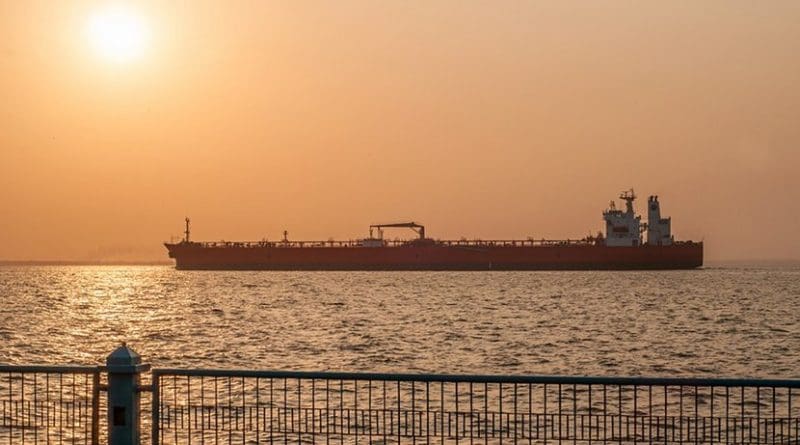Diversify Or Perish: Venezuela’s Meltdown And The Oil Curse – OpEd
By Arab News
By Abdel Aziz Aluwaisheg*
Venezuela has been in a state of meltdown for the past two years, but is now in danger of fully collapsing. Citizens are fleeing the country and its neighbors are tightening controls over their borders to prevent more Venezuelans from arriving. Why is this happening in what is potentially one of the richest countries in the world?
The Venezuelan experience has puzzled social scientists for decades and now worries all of us regarding the spillovers of the crisis on its neighbors and globally. How are other oil producers to immunize themselves against such a fate?
The indicators have been thrown out of whack in Venezuela and the government’s reactions are not helping. Inflation is now over 700 percent and forecast to soar even further during the remainder of 2018. In August, the government lowered the official exchange rate of the currency by 95 percent. It has renamed the Venezuelan currency the “sovereign bolivar,” anchoring it to the petro, a cryptocurrency it launched in February, which its critics have described as a scam.
Hundreds of thousands have fled to nearby countries in response to a violent crackdown on protests, and the lack of jobs. More people have now fallen below the poverty line and are unable to feed their families than at any time in recent memory. Some 11 percent of children under the age of five were suffering from moderate to severe malnutrition in 2017. Oil output is near 1940s levels, partly due to a lack of resources to run production.
Venezuela last year defaulted on some of its loans, including $3 billion in bonds that the Goldman Sachs Group had bought at a discount. Creditors have begun seizing the assets of the state oil company, and the US and EU have imposed sanctions against the country. Corruption is believed to be rampant: Transparency International ranks Venezuela 169th out of 180 nations in its perception of corruption index.
While the media has pointed to the fall in oil prices and the disputed presidential election in May as the final straws, the roots of the crisis go much further. Decades in fact, according to Terry Lynn Karl, a professor of political science and Latin American studies at Stanford University, who explained in a classic book how oil weakened the Venezuelan state. Dependence on petroleum led to disproportionate fiscal reliance on petrodollars and public spending, at the expense of statecraft. Oil booms created the illusion of prosperity and development, while destabilizing the country and weakening state capacity.
Karl has said that it is a combination of bad economic policy and political misjudgments that have led Venezuela to this crisis. Hugo Chavez, President Nicolas Maduro’s mentor and predecessor, was very popular among the poor and ordinary citizens, but nevertheless insisted on a process of legitimation as he pursued similar wrong-headed economic policies. “Chavez never did anything without an election that could be verified, so he kept winning elections and, when he would change something like the constitution, which he changed, there was a huge mandate to do that,” Karl explained.
Economists say that Venezuela, like many oil-producing countries, is suffering from a severe case of “Dutch disease” or the “curse of oil.” With the largest oil reserves in the world and one of the highest rates of oil production and export, it suffered the damaging effects of the disease, as non-oil sectors were made less competitive compared to the oil industry because of rising costs, especially labor.
Volatility of oil prices have also made it difficult for Venezuela to plan properly and maintain a balanced fiscal policy. Oil also skewed wealth distribution in Venezuela, causing popular discontent and making it possible for populists such as Chavez and Maduro to capitalize on the disparity without providing solutions. Corruption and a lack of transparency in the oil industry and government only deepened mistrust among the deprived masses.
Many oil and gas producers have exhibited similar, but less severe, symptoms of the oil curse, including both economic and political distortions. The most glaring examples include Nigeria and Libya, where oil exploitation led to political upheaval, corruption and economic mismanagement. Some countries, such as Norway and Gulf Cooperation Council nations, have managed to avoid the severe symptoms of the disease by consciously using their natural resource revenues for sustained development and political stability.
Some countries were able to cure themselves of the disease and rebalance their economies by fighting corruption and establishing reliable transparency and accountability processes, while reducing subsidies and encouraging investment in other sectors.
It may now be too late for Venezuela and we may see more of its 30 million citizens fleeing to neighboring countries and beyond. It faces its fate alone, because of its isolation and open hostility from some of its neighbors, including the US. International financial institutions are not likely to step in, as they did in other cases, without a political process to guide any attempt to bail out the country.
Other countries dependent on oil or gas are no doubt following the events in Venezuela and taking notes, as they did from the unraveling of Libya and the chaos of the oil-producing regions of Nigeria. Diversify or perish — that seems to be the No. 1 lesson.
*Abdel Aziz Aluwaisheg is the GCC Assistant Secretary-General for Political Affairs & Negotiation, and a columnist for Arab News. The views expressed in this piece are personal and do not necessarily represent GCC views. Twitter: @abuhamad1

